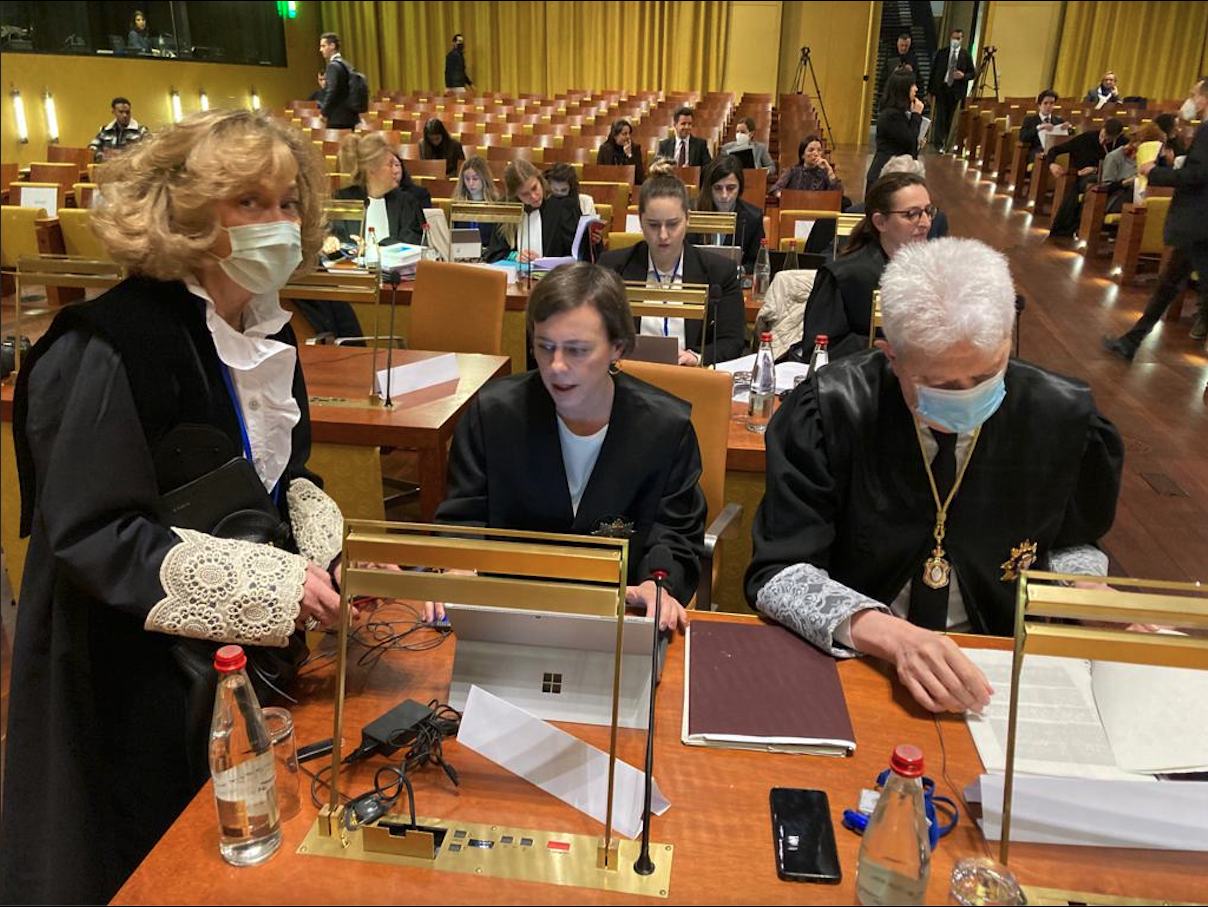05.04.2022 - 11:39
|
Actualització: 13.06.2022 - 10:12
The oral hearing to decide on the European arrest warrants against the Catalan exiles started on Tuesday morning in Luxembourg, at the Grand Chamber of the Court of Justice of the European Union (CJEU). The session started with a ten-minute speech by the Spanish Supreme Court prosecutor’s office, followed by another one by Spain’s far-right party Vox. That’s how Spain will introduce itself on this decisive day for the outcome of the legal battle that has been fought for more than four years by the exiles in various European jurisdictions and before the high court of the Union.
Both the Public Prosecutor’s Office and Vox are part of this procedure, which was initiated by judge Pablo Llarena with the sending of seven pre-trial questions to the CJEU on the criteria for denying arrest warrants as they are the prosecuting party in the Supreme Court case. Once the exiles’ lawyers have spoken, the one who will speak on behalf of the Kingdom of Spain will be Andrea Gavela, who for a few months now has been the new Spanish lawyer for cases related to the CJEU.
The previous one, Sonsoles Centeno, resigned because Pablo Llarena openly disqualified her and held her responsible for her failure to detain exiled President Puigdemont in Alghero and extradite him to Spain. To measure the magnitude of this incident, it must be taken into account that Centeno, as Spain’s attorney in the CJEU, was no longer an accusatory party, as was the state’s attorney general in Madrid’s referendum trial, but she was the person who spoke and acted on behalf of the Spanish state, Supreme Court included. In other words, the judge who issued the European warrants, in a (or another) rush of despair for having failed in Puigdemont’s extradition, disallowed his representative before the highest European court, the CJEU.
The CJEU is precisely the court that will hear the parties today and 15 judges will decide on how these arrest warrants should be resolved. The incident between Llarena and the state attorney general has not been overlooked by the defendants of Carles Puigdemont, Toni Comín, Clara Ponsatí and Lluís Puig. Their lawyer, Gonzalo Boye, even though he does not have enough time in today’s hearing (forty minutes, ten for each of his representatives), has included it in the documentation submitted to the court.
The important issue, however, is not the incident itself, but the fact that caused it: in the other case that Puigdemont, Comín and Ponsatí have open, about their immunity as MEPs, Sonsoles Centeno argued before the General Court of the Union that they should not be granted the precautionary measure to fully regain immunity because the presentation of pre-judicial proceedings by Llarena on the arrest warrants meant that they were immediately suspended. In other words, she argued that, in accordance with EU law, there was no risk of detention and that they did not need precautionary measures. The European Court of Justice accepted the argument and included it in a resolution last summer.
Spain’s abuse of the arrest warrants
This is the reason why the attempt to extradite Puigdemont from Italy failed. Llarena should have suspended the arrest warrants when he presented the pre-judicial questions. If he had any doubts about how to run them, he could not keep them active. But he did not do it, he kept them alive and forced the arrest of Puigdemont, he did not succeed and finally he blamed the state’s lawyer.
With this precedent, the role left to Andrea Gavela is not easy. And even less so because Llarena, precisely in the interlocutory hearing of the pre-judicial issues, in March last year, categorically stated that the criminal proceedings were “completely paralyzed by the situation of rebellion”. The misuse of the arrest warrants and the abuse of a system of mutual trust between Union member states in judicial cooperation will be one of the great arguments of the defense of the exiles, because it fully affects the credibility of the Spanish position. Actually, the first instance of this court, the ECJ, already told Llarena that what he said and considered about the suspension of the arrest warrants was irrelevant as he had opened a related pre-trial procedure.
Poland, Romania… and the European Commission?
Adding to Spain’s image is the fact that it will be accompanied in the oral hearing only by Poland and Romania, which have already presented allegations defending Llarena’s position and which will have ten minutes each of intervention today. No other EU state wanted to join, although recently a case of refusal of extradition with issues very similar to those formulated by Llarena affected the Netherlands.
Poland has been warned and sanctioned repeatedly for not upholding the rulings of the ECJ. And Romania, which has another recent precedent of losing a legal battle at the Luxembourg Court for placing domestic law before European law, is a precedent to be taken into account if in the future any Spanish court is tempted to do so.
The counterpart will be Belgium, which will defend the decision of the Brussels Court of Appeal to deny the execution of the arrest warrant against Lluís Puig. And yet another part, the European Commission, which will try to find a balance between the defense of European doctrine and the will to take sides with Spain, as it has always done in questions related to Catalan self-determination.


